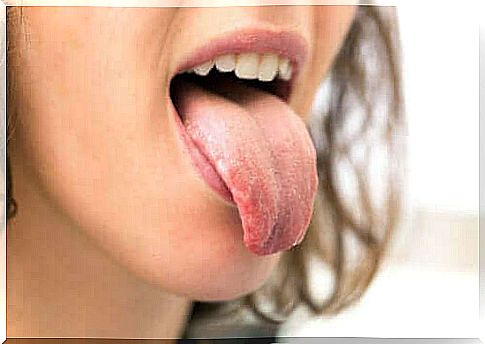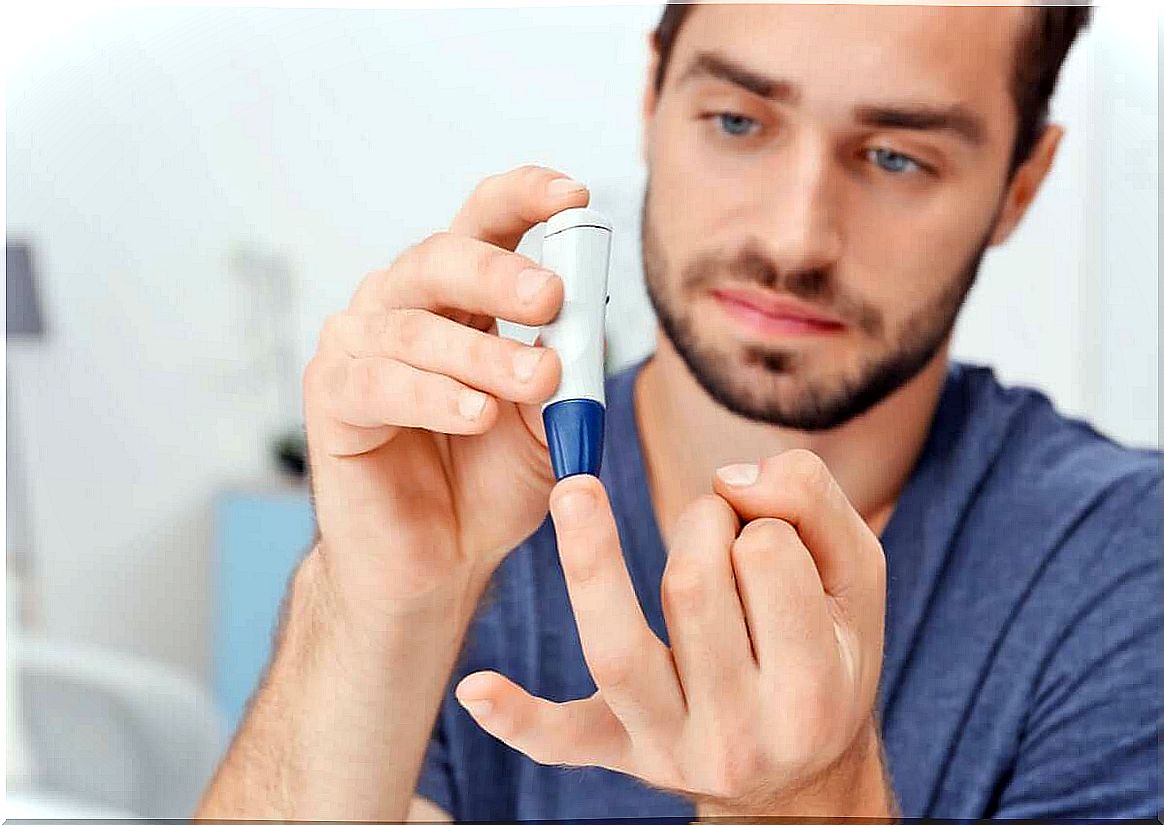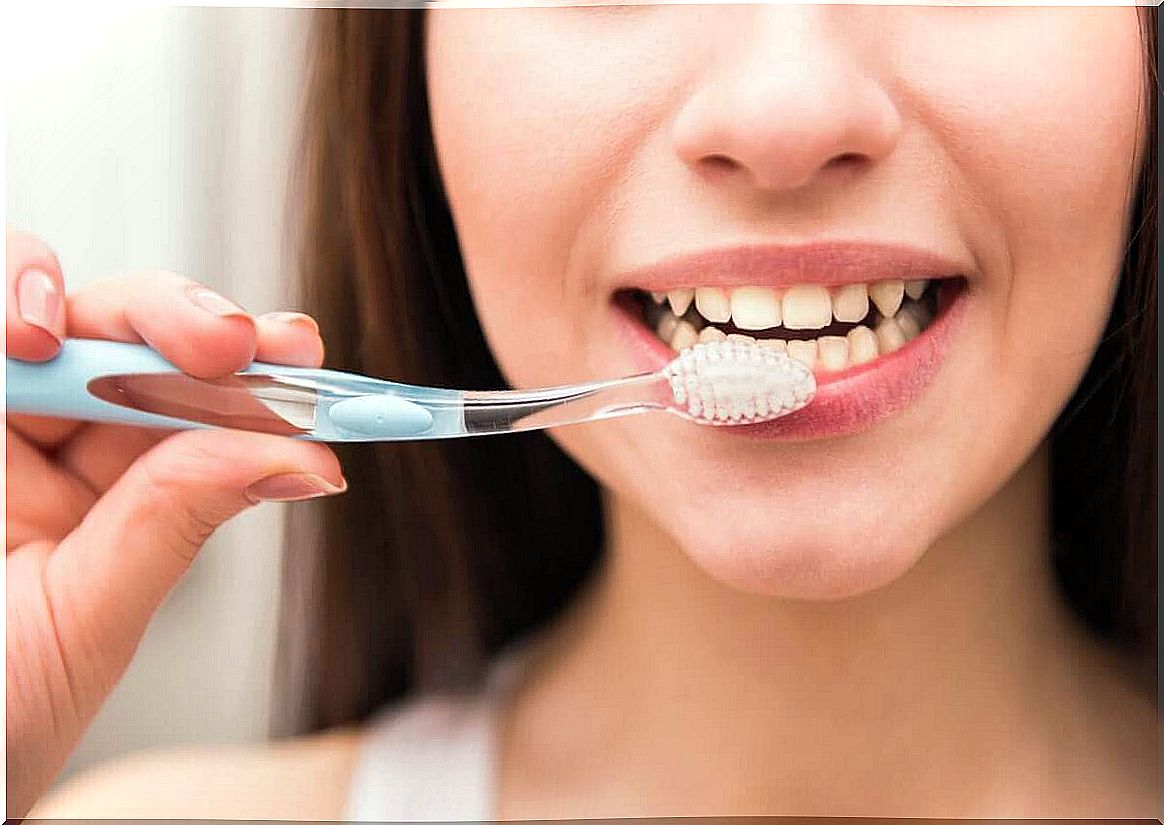Why Do People With Diabetes Experience Dry Mouth?

People with diabetes, whether type 1 or type 2, often experience dry mouth or xerostomia. The problem is that it’s not just a feeling; it can have serious consequences at the oral level.
Xerostomy is associated with an increased risk of caries, infections and periodontal disease. Various studies confirm that more than 70% of people with diabetes experience dry mouth. Therefore, we explain why it happens and how to solve it in this article.
What are the symptoms of diabetes?
Diabetes mellitus is a disease that affects the metabolism of glucose. There are two main types: type 1 and type 2. In type 1 diabetes, the pancreas is unable to secrete insulin.
On the other hand, with type 2, there is a resilience to insulin in the various tissues of the body. However, there may also be a reduction in secretion. This is a pathology that unfortunately is becoming more common.
Xerostomy is one of the most important symptoms of diabetes. So much so that according to a review study published in the Journal of Endocrinology and Nutrition, it is among the most common oral manifestations in people with diabetes.
Other oral symptoms that may occur are sores, candidiasis in the throat and a burning sensation. However, these are not the only signs. There is also polyuria (increased urination), polydipsia (increased thirst) and weight changes.

Why do people with diabetes experience dry mouth?
Xerostomy is, as we have mentioned, the term that refers to dry mouth. In people with diabetes, it has to do with various factors, almost all related to poor blood sugar control.
First of all, one of the reasons is increased urination. An increase in urination leads to dehydration. And since saliva consists mainly of water, production is changed when body fluids are misaligned.
Another similar factor that is crucial for dry mouth in diabetes is a change in the composition of saliva. In addition to water, saliva also contains glucose and protein.
A study published in the Journal of Oral Medicine and Pathology explains that diabetes affects the morphology of the salivary glands. It produces so-called diabetic sialosis, which consists of the salivary glands increasing in size. This causes their function to be impaired.
Other causes of xerostomy
Although a large proportion of people with diabetes experience dry mouth, this disease is not the only cause. It is important to note that many factors affect the production of saliva, and many situations can trigger xerostomia.
For example, non-diabetic dehydration. Similarly, medications can cause this symptom, especially those used in chemotherapy treatments.
Old age is also often a factor, as are other chronic diseases such as cirrhosis, HIV and tuberculosis. Sjøgren’s syndrome is another of the most relevant causes of xerostomy.
Solutions for dry mouth in people with diabetes
The importance of dry mouth in diabetes lies not only in the discomfort it causes, but also in the range of mouth problems it can cause. For example, it increases the risk of suffering from caries and infections, as well as periodontal disease.
Therefore, it is important to take preventive measures that avoid and prevent this type of pathology. First and foremost, people with diabetes need to enhance oral hygiene by using mouthwash and dental floss, in addition to brushing.
Furthermore, it is best to avoid sugary and acidic liquids. Of course, it is important to stay hydrated, but it is best to drink water. Frequent visits to the dentist are also necessary as the person must check and correct any changes as soon as possible.
In addition, in some cases doctors prescribe medication that stimulates saliva production. In fact, they can even use artificial saliva. Of course, these measures are reserved for cases where general measures do not solve the xerostomy.

Remember
People with diabetes are more likely to experience dry mouth. This is because the disease changes both the composition of saliva and the morphology of the salivary glands.
To avoid this, it is necessary to maintain proper control of blood sugar levels. In addition, good fluid intake and special care for oral hygiene are important requirements to reduce complications.









